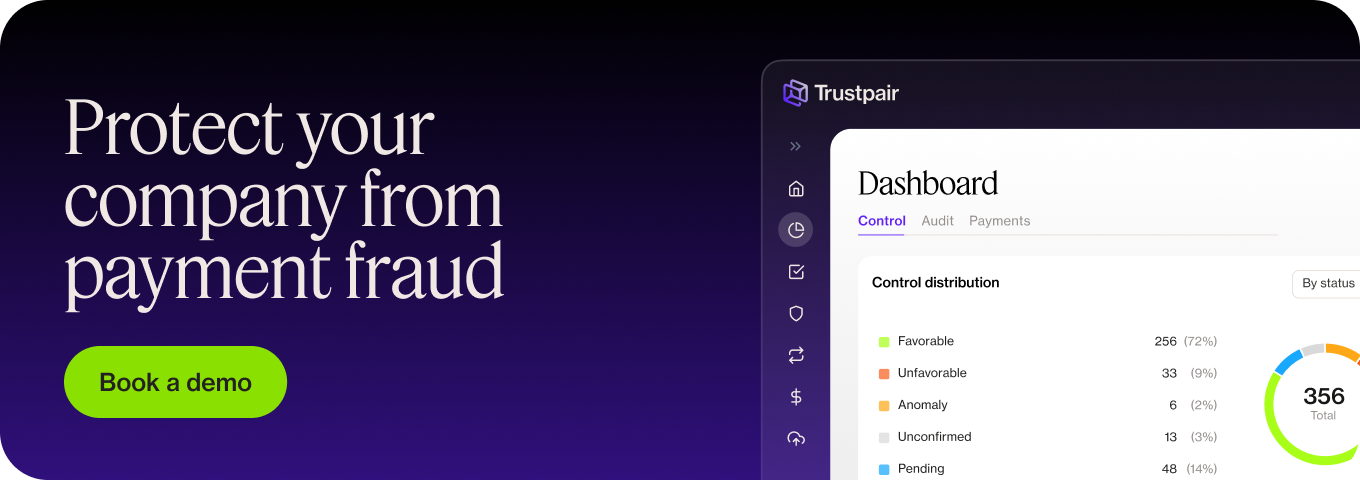In June 2022, US government contractor Odyssey International was convicted of conspiracy to defraud the government. It was a misrepresentation of contracts in one of the largest fraud cases, resulting in approximately $90 million in losses. It happened because the fraud due diligence either wasn’t performed at all or wasn’t done correctly. This meant that the company could pass off falsified documents as genuine, meet the requirements of a contract that it wasn’t qualified for, and commit a financial crime.
If fraud can happen to the US government at the highest level, it can (unfortunately) happen to your business too. However, customer due diligence can help in fraud prevention. Learn how in this article!
Being vigilant in your fraud due diligence for international contracts
Performing fraud due diligence in your international contracts can be some of the trickiest work. Especially because every jurisdiction operates differently and there are many different types of fraud.
However, the risks associated with carelessness are too great to bear, leaving your company exposed to reputation damage, loss of revenue, and vulnerabilities to regulatory compliance.
Fraud due diligence refers to the background work: checking and verifying company information and customer identity before entering a contract. For example, fraud prevention checks can reveal:
- Credit check failures
- Senior management investigations and backgrounds
- Relationships with political figures or terrorist groups
- Previous criminal cases
Therefore, by performing fraud due diligence, you can help prevent the likes of online fraud crimes, IP infringements, and operational issues like delayed product shipping. Alongside the Foreign Corrupt Practices Act (1977), you can also prevent bribery when awarding international contracts to a fraudster.
How to prevent fraud from international contracts
Preventing fraud with any supplier is never easy, but it becomes significantly harder when you operate in a different country from your counterparts. In many countries, certain records are not made publicly available, which can hide key information.
However, there are certain best practices within the due diligence process that your organization can follow in order to protect itself from suspicious business fraud schemes.
-
Get help from the experts
Here at Trustpair, fraud due diligence is our bread and butter. Since inception, we have been able to protect our clients from $60 million in fraud and theft attempts.
Working with us doesn’t only mean that your business benefits from best-in-class service, though. You’ll also get easy access to international account verification in order to check your international partners and know the risks of doing business.
-
Use letters of credit and secure payment methods
Letters of credit are secondary contracts involving banks that work alongside your agreement with a vendor. Previously, sellers would be reluctant to send their products abroad without payment, and buyers would be reluctant to pay before inspecting their goods.
So a letter of credit is a bank guarantee that the seller will be paid within an agreed time frame and in full. Even if the buyer doesn’t pay on time, the bank would cover the amount.
Letters of credit are helpful in fraud due diligence because they provide extra security for both parties. Sellers entering into new trading partnerships can be sure that they’ll receive the money for their goods. Likewise, buyers know that they’ll receive the goods before they need to pay.
One of the most secure e-commerce payment methods is direct debit via ACH. This is far superior (in terms of security) to alternatives like checks or even bank transfers. In fact, less than 1% of ACH payments were found to be fraudulent between 2013 and 2015.
In contrast, there were many more cases of credit card fraud and check fraud, highlighting the benefits of a digital system.
Once sent, the payment is unable to be intercepted before it reaches the recipient’s bank account securely.
-
Place requirement clauses in your international contracts
Requirement clauses mean that you can guarantee certain conditions or events when working with an international partner. Requirement clauses can include the likes of product samples, or compliance with certain US regulations.
This helps with fraud due diligence as it legally protects your business when a fraud perpetrator doesn’t fulfill its obligations. Leaving the other party liable to cover your damages or any other consequences listed in the contract.
You can even negotiate guaranteed shipping times after your purchase order is submitted, in order to better manage your inventory and fulfill customer orders without an issue.
-
Stay up to date with current fraud trends
CEO fraud and gift card fraud are two of the most common types of scams currently. Most companies are good at creating resources and training new staff against the most common types of fraud.
But here at Trustpair, a leading B2B payment fraud prevention platform, we don’t think this is enough.
Educating your staff on at least an annual basis should help keep them up-to-date with emerging techniques. While the right technology systems will never fail, you’re also empowering staff in enhanced due diligence to fight against fraud at every level.
-
Limit technical and physical security access
Due diligence on your own systems is also required to keep your business secure against fraud risk. This means limiting access for your international partners and providing them with front-end contact only.
Protecting your business in this way should help prevent vulnerability to cybercrimes, employee fraud, and money laundering. Plus, it gives you greater internal control over your security.

